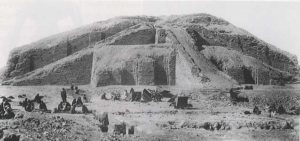http://britishmuseum.org/research/collection_online/collection_object_details.aspx?objectId=369361&partId=1&people=93250&peoA=93250-1-8&page=1
(Texts: All Artifacts, Color Coding, & Writings in Bold Type With Italics Inside Parenthesis, are Added by Editor R. Brown, not the Authors, Translators, or Publishers!)
(gods in blue …mixed-breed demigods in teal…)
(1) The name of this memorial-stone is
(2) “The Establisher of the Boundary
(3) for ever.”
(1) Five ‘gur’ of corn-land, a gan, measured by the great cubit, being reckoned at thirty ‘ka’ of seed,
(2) on the bank of the Bad-dar Canal, in Bit-Khanbi,
(3) the upper length to the north, adjoining Bit-Khanbi;
(4) the lower length to the south,
(5) adjoining Bit-Imbiati;
(6) the upper width to the west,
(7) adjoining Bit-Khanbi;
(8) the lower width to the east,
(9) adjoining the bank of the Bad-dar Canal,
(10) which from the hand of Amel-Enlil,
(11) the son of Khanbi, Marduk-nasir, the king’s officer,
(12) has received by purchase.
(13) Shapiku, the son of Itti-Marduk-balatu,
(14) the son of Arad-Ea, was the surveyor of the land.
(15) One chariot with its furnishings (?), valued at one hundred (shekels of) silver,
(16) six horse-saddles (?), valued at three hundred (shekels of) silver,
(17) one western ass, valued at thirty (shekels of) silver,
(18) two saddles (?) for the western ass, valued at fifty (shekels of) silver
(19) one ass . . . . . , valued at fifteen (shekels of) silver,
(20) one ox . . . . . , valued at thirty (shekels of) silver,
(21) thirty-four ‘gur’ and eighty ‘ka’ of corn, measured by the twelve-‘ka’ measure, valued at one hundred and thirty-seven (shekels of) silver
(22) one hundred and sixty ‘ka’ of oil, measured by the four-‘ka’ measure, valued at sixteen (shekels of) silver,
(23) two upper garments . . . . . , valued at twelve (shekels of) silver,
(24) nine mantles, valued at eighteen (shekels of) silver, one under-garment (?) valued at one (shekel of) silver,
(25) one . . . . . -garment, valued at one (shekel of) silver,
(26) one . . . . . -garment, valued at six (shekels of) silver,
(27) in all seven hundred and sixteen (shekels of) silver,
(28) which Amel-Enlil, the son of Khanbi,
(29) from the hand of Marduk-nasir, the king’s officer,
(30) has received as the price of the five ‘gur’ of corn-land.
(31) Whensoever in later days an agent,
(32) or a governor, or a prefect, or a superintendent,
(33) or an inspector, or any official whatsoever, who shall rise up and
(34) be set over Bit-Khanbi,
(35) shall direct his mind to take away these lands,
(36) or shall lay claim to them, or cause a claim to be made,
(37) or shall take them away or cause them to be taken away,
Side II
(1) or shall side with evil
(2) and shall return those lands to their province,
(3) or shall present them to a god, or to the king, or to the representative of the king,
(4) or to the representative of the governor, or to the representative of his council,
(5) or to any other man,
(6) or shall cause curtailment or diminution,
(7) or shall say, “The lands were not the gift of the king,”
(8) or because of the curse shall cause another to take them,
(9) or shall send a fool, or a man who is deaf, or one who is feeble-minded, or a vagabond, or one who is without intelligence,
(10) and he shall cause him to remove this memorial-stone, or shall cast it into a river,
(11) or put it in a well, or destroy it with a stone, or burn it in the fire,
(12) or hide it in the earth, or hide it in a place where it cannot be seen,
(13) upon that man may Anu, Enlil, Ea, and Nin-makh,
(14) the great gods, look with anger,
(15) and may they curse him with an evil curse that cannot be loosened!
(16) May Sin, the light of the bright heavens, with leprosy that never departs
(17) clothe his whole body, so that he may not be clean till the day of his death,
(18) but must lie down like a wild ass at the outer wall of his city!
(19) May Shamash, the judge of heaven and earth, smite his countenance,
(20) so that his bright day may turn to darkness for him !
(21) May Ishtar, the lady, the princess among the gods, send a curse (?) upon him,
(22) and in misery (?), her message of anger,
(23) may he multiply his words day and night,
(24) and like a dog may he pass the night in the open place of his city!
(25) May Marduk, the king of heaven and earth, with dropsy, the bond of which
(26) cannot be loosened, fill his body!
(27) May Ninib, the lord of the boundary and the boundary-stone, tear out his boundary-stone,
(28) tread down his boundary, and change his holding!
(29) May Gula, the mighty physician, the great lady,
(30) put a grievous sickness in his body,
(31) so that he may pass light and dark blood like water!
(32) May Adad, the ruler of heaven and earth, overwhelm his fields,
(33) so that there may spring up abundantly weeds in place of green herbs and thorns in place of grain!
(34) May Nabu, the exalted minister, appoint him days of scarcity and drought
(35) as his destiny!
(36) May all the great gods, whose names are mentioned on this memorial-stone,
(37) drive him into evil and unhappiness!
(38) His name, his seed, his offspring, (and) his posterity
(39) may they destroy in the mouth of widespread peoples!
(40) The name of this memorial-stone is “The Establisher of the Boundary for ever.”
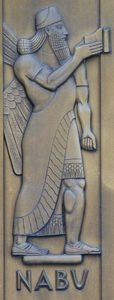
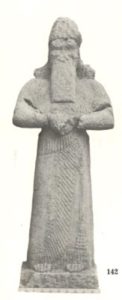
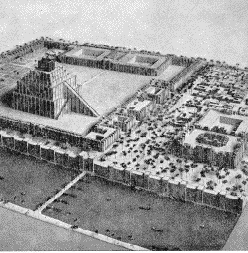
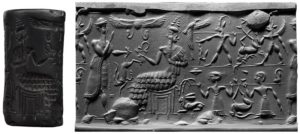
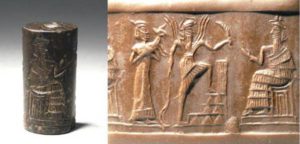
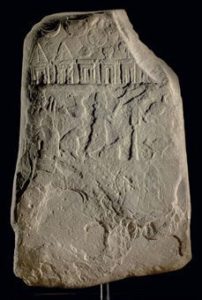
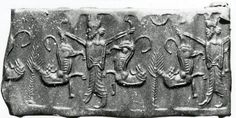

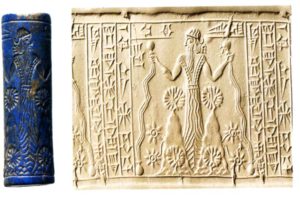
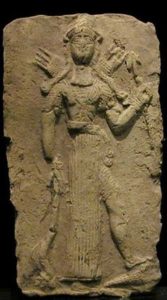
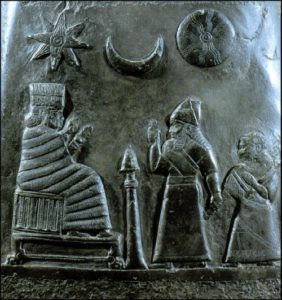
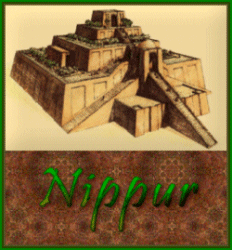
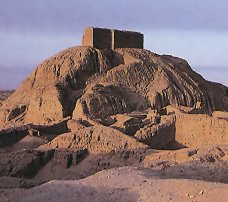
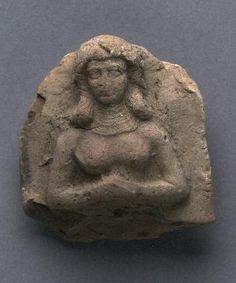
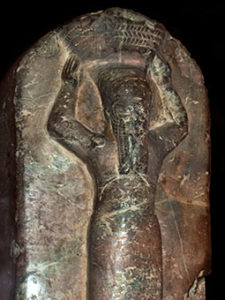
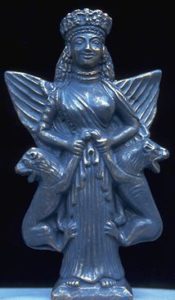
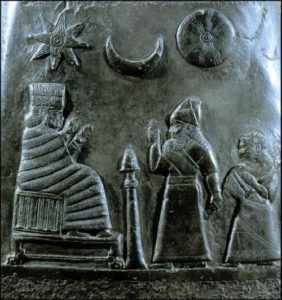
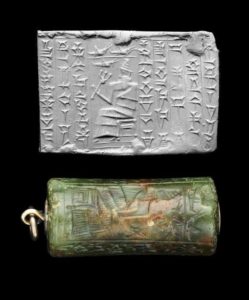
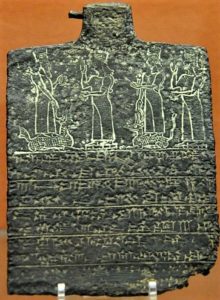
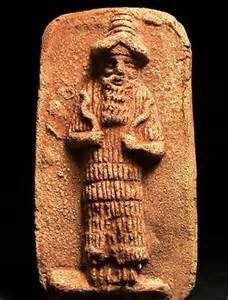
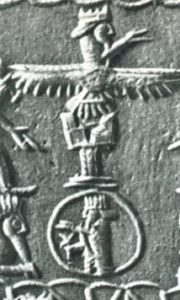
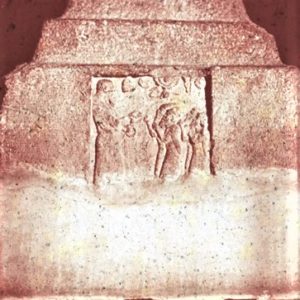
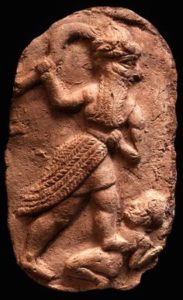
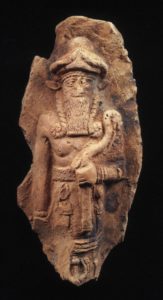
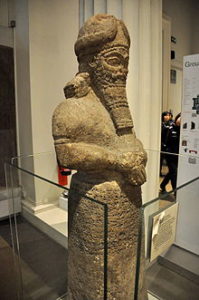
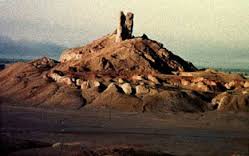
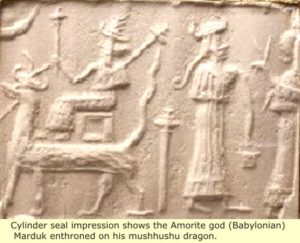
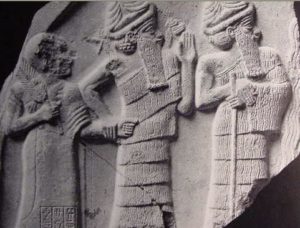
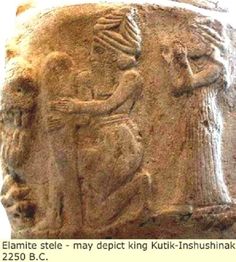
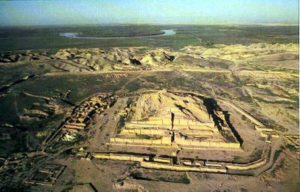
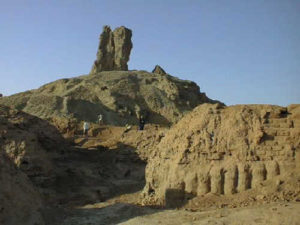
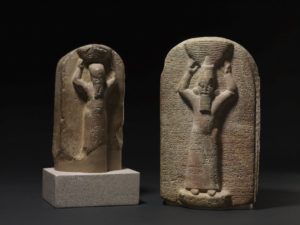
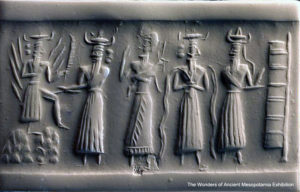
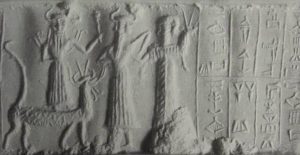
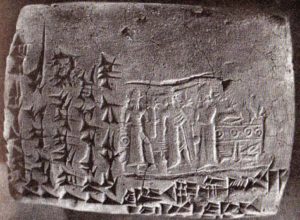
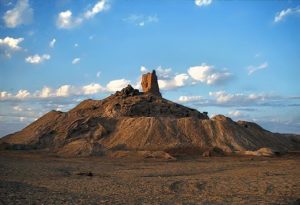
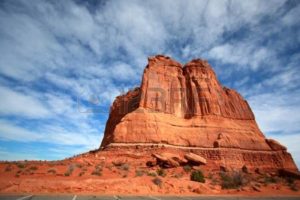
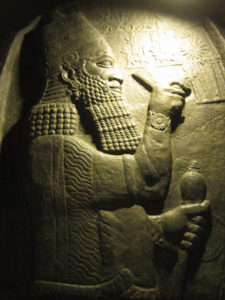
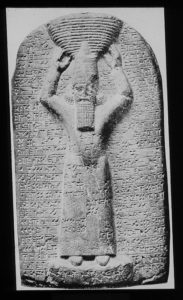
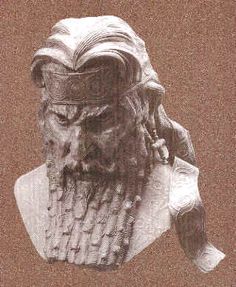
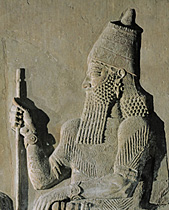
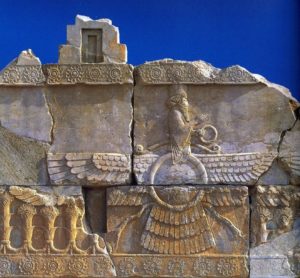
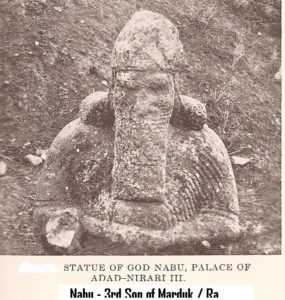
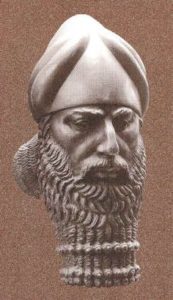
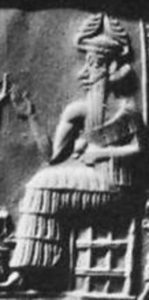
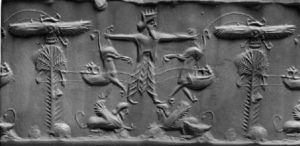
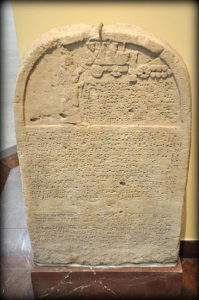

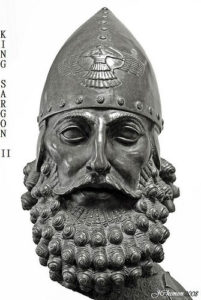
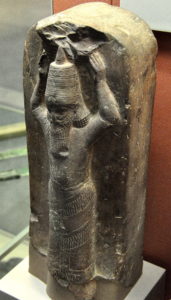
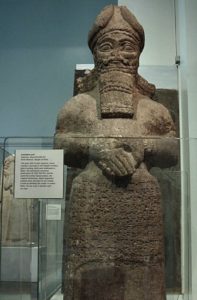
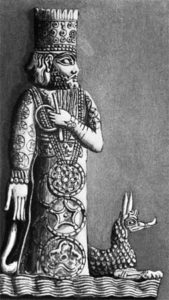
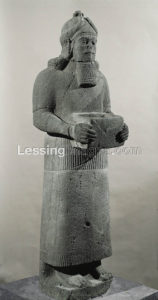
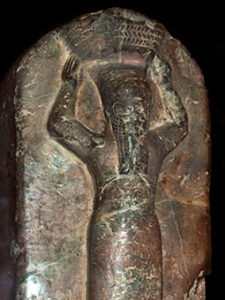
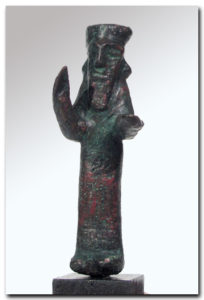
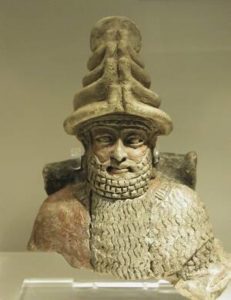
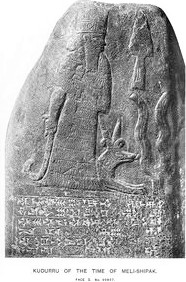
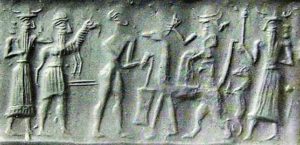
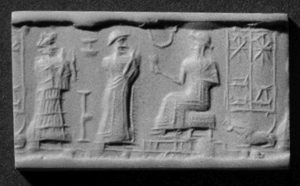
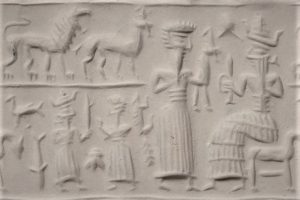
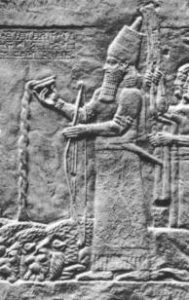
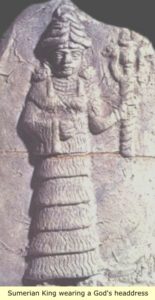
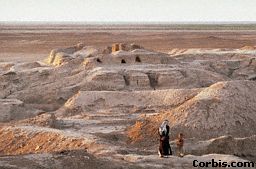
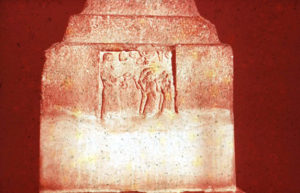
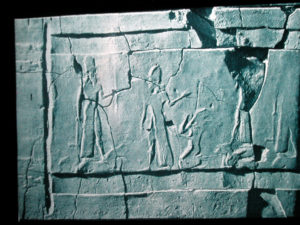
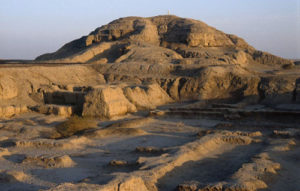
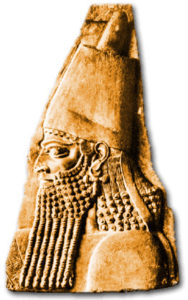
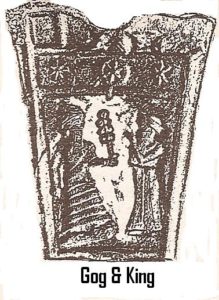
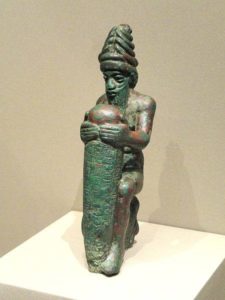
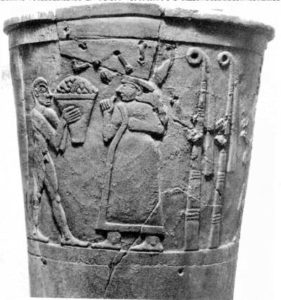 (
(